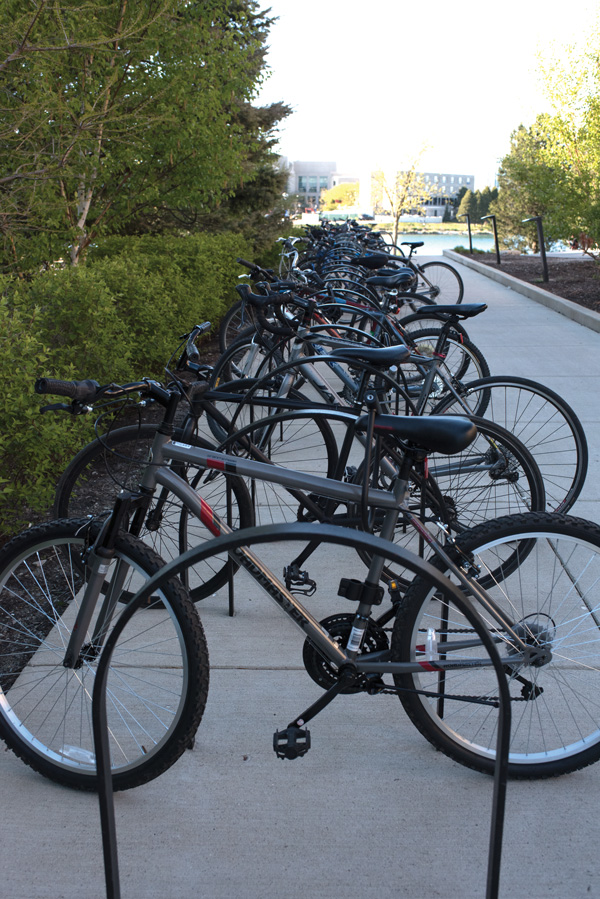University Police makes first arrest using bait bike
Allie Goulding/The Daily Northwestern
A bike rack outside Norris University Center on Northwestern’s campus. NUPD recently made their first arrest using bait bikes with GPS equipment placed across campus.
May 7, 2017
Since placing bikes equipped with GPS trackers across campus in January, University Police made its first arrest last month as a result of the program.
The bait bike program plants UP bikes at bike racks around campus to detect and deter theft, said lieutenant Rod Boyd, who is in charge of the program. After field testing throughout Fall Quarter, UP received a grant for GPS units to attach to bikes, Boyd said.
UP made its first arrest as a result of the program April 23 when officers arrested a man near the Foster Street CTA station at 8:55 a.m. after he stole a bait bike placed near University Library, Boyd said.
Boyd said the bikes are placed at random, allowing the program to targets all areas of campus, but they are generally set up in areas with higher rates of theft. Although there may not be bait bikes at every rack, the scope should deter theft generally, he said.
When the bait bikes are moved, UP is alerted by the GPS tracking devices, Boyd said. He said the whole bike has to be displaced for the GPS to be effective, so tire theft may not be prevented.
Boyd said the bait bike program will be especially effective if awareness of the bait bikes spreads. Once the program gets underway, UP will have more data to help prevent theft, he said.
“We’re gathering information right now,” Boyd said. “We have so many bike racks that we haven’t found one concentrated area where theft is occurring, but we’ll have a better idea once we collect more data.”
Bienen sophomore Dan Peters said he feels his bike is safe when locked to University racks. He said he thinks general awareness will help protect student bikes.
“I figure that if bait bikes are planted randomly, it would make people more wary of stealing any locked bike, so I’d feel that my locked bike is safer,” Peters said.
Boyd said data collected over the first year of the program will inform UP’s theft prevention efforts, such as identifying high-risk areas. So far, UP hasn’t identified any specific areas where bike theft is concentrated, Boyd said.
Weinberg sophomore William Hofstadter said he thinks bikes are most vulnerable on the edges of campus and near the fraternity and sorority quads.
“Bikes are generally safe, but if people are too careless, leaving bikes out late at night in these vulnerable places, they’d be in danger of getting their bike stolen,” Hofstadter said.
Ultimately, Boyd said, thieves are looking for the right time and place when planning to steal a bike. Boyd added he hopes the technology being utilized by the bait bike program will deter theft.
“Thieves are opportunists, so the opportunity to take a bike is conducive to theft,” Boyd said. “Bikes are taken in areas where thieves think they might be able to steal one successfully.”
Email: [email protected]
Twitter: @annalaffrey


